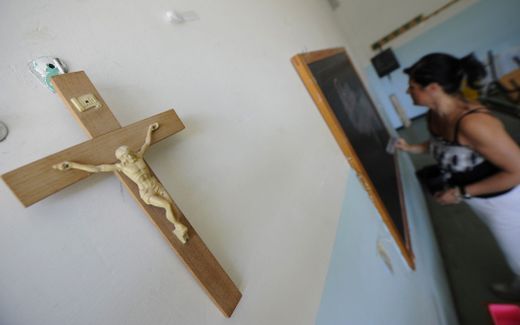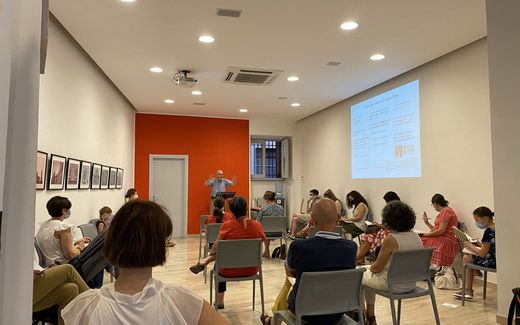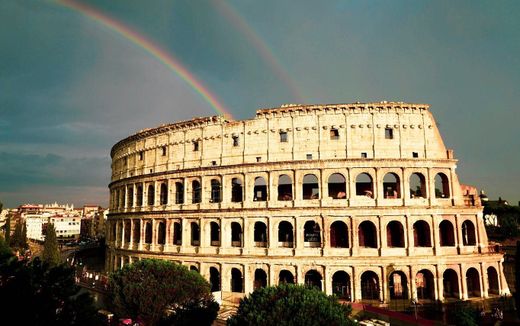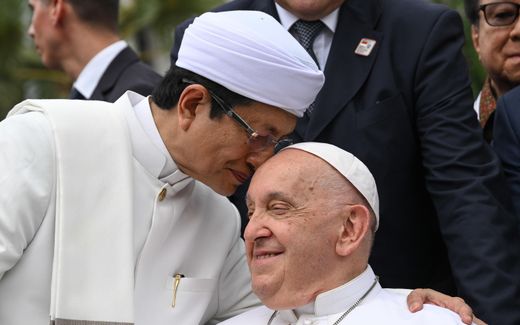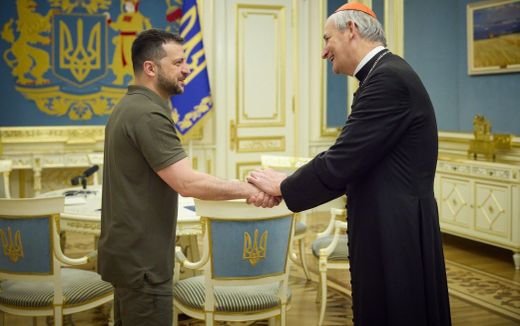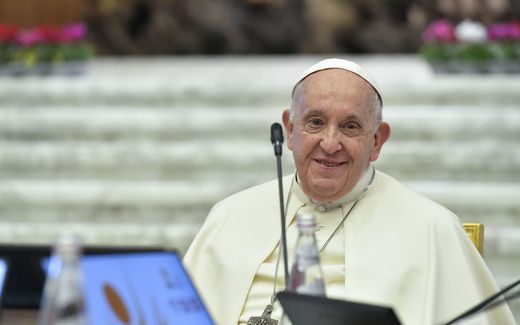If Italy were truly secular, it would not care so much about the Pope
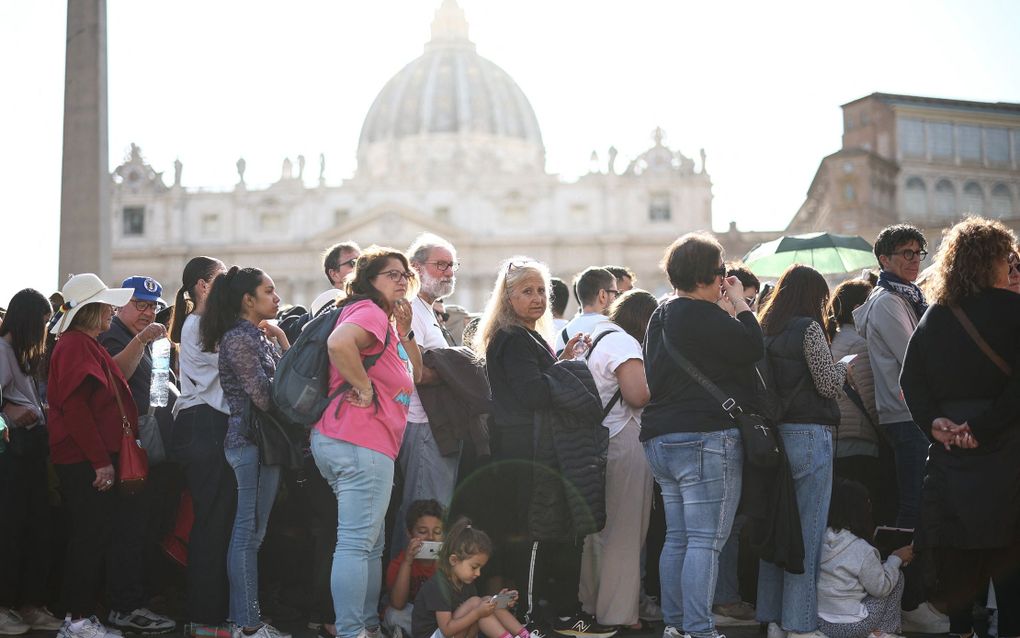
Alll of Rome came to a standstill when the Pope died. Photo AFP, Henry Nicholls
Southern Europe
Many parts of Rome were blocked the week after the Pope’s death. And the whole country was expected to be five days in mourning. But as an evangelical Protestant, Chiara Lamberti prefers to live in a genuinely secular state.
Stay up to date with Christian news in Europe? Sign up for CNE's newsletter
It was 1:11 PM on April 25, three days after the Pope's death. I was gathered in a park with many other evangelical church believers when our cell phones rang in unison. The sound was intense and alarming. It was a message from It-alert, the national public alarm system that sends alert notifications in case of emergencies, like nuclear incidents or the collapse of a large dam. We all were alarmed.
However, upon reading the message, we discovered that the Civil Protection Department had used this system to inform everyone in Rome that access to St. Peter’s Square was restricted until 5 PM that day. A simple organisational notice.
Daily life
It is clear that the Pope's death and funeral required enormous organisational efforts, especially when, on Saturday, April 26, more than 50 heads of state and various political figures from around the world gathered in St. Peter’s Square for the funeral.
For at least three days, helicopters buzzed incessantly over our homes, a constant reminder of the extraordinary effort the city and Italy were making to ensure everything went smoothly. However, it also served as a reminder of how deeply Roman Catholicism influences daily life, even for members of other religious denominations in Italy.
Is the loss of the head of the Catholic Church a grave national mourning for all of Italy?
It is the question of whether everyone in Rome needed to be notified and reminded of all the events around the Pope’s death and funeral. Too often, it is taken for granted that the answer is yes.
Safety
In cases like this, the Italian state consistently shows its inability to see itself as distinct from the Vatican City State and to remain secular while ensuring safety, respect, and support for the faithful and pilgrims who wish to participate in a religious event such as the funeral of a Pope.
For example, on April 25, Italy celebrates Liberation Day, marking the end of Nazi-Fascism. Every year, there are parades and events. This year, however, the government called for “sobriety” in the celebrations due to the Pope’s death. Naturally, this statement sparked significant controversy. What does “sobriety” mean? And why should the secular celebrations of the state be moderated based on the phases the Roman Church is experiencing? Is the loss of the head of the Catholic Church a grave national mourning for all of Italy?
Moreover, five days of national mourning were declared — more than for any head of state or nationally significant figure.
Another controversy arose over the mandatory one-minute silence observed in all schools at 10:00 AM on the day of the funeral if open, or on the first school day after the funeral (for those on holiday during the Easter-25 April holiday period). No opt-out option was provided to students. Yet schools in Italy are public, and classrooms are home to students of various religious affiliations and differing interest levels in Catholicism.
On Saturday, the entire city was at a standstill, and we had to revise all our travel plans because Francis had decided to be buried not in St. Peter’s but in Santa Maria Maggiore, the papal basilica dedicated to Marian devotion, beneath the miraculous icon Salus Populi Romani. A Madonna because, in the end, he entrusted his papacy and life to her, as written in his testament.
The pope mobile traversed the city, and crowds gathered along the route to pay tribute to Francis during this final homage to the Madonna.
Emotion
Pope Francis was undeniably a highly influential figure, and many admired his papacy. He used his influence to advocate for peace and address social injustices. It is, therefore, understandable that he is seen as a figure of socio-political significance as well.
However, there is something implicitly assumed in these situations: that all of Rome and all of Italy share the same interest and intensity of emotion in mourning.
Surveys show that fewer Italians identify as practising Catholics each year. Yet, the structures of our country remain deeply tied to Roman Catholicism. After all, the Pope is the head of the Roman Catholic Church and of a foreign state, so why should there be a mandatory minute of silence in Italy? It is because Italy continues to see itself as a mono-confessional state.
There is much to say about these five days of mourning and how Italy reacted to the news of the Pope’s death. It felt like entering a loop of self-reinforcing news. For five days, all programming on state television was replaced or reoriented to comment on what was happening in the Vatican. It seemed as though the nation’s life revolved around St. Peter’s, as if nothing else was happening in the world. The emotional wave affected everyone, and no one questioned the secular stance a state should maintain in such a context.
Genuine secularism
Living in Rome as a member of a religious minority, these events remind me how far we are from achieving true secularism and distinguishing respect for an important international figure from mourning the loss of a church leader.
It is sad that a man has died. But does all of Rome and all of Italy truly believe this moment is tragic because the Vicar of Christ has left the seat vacant?
No! There are many evangelical churches in Rome. They are small and do not have the same influence as the Pope. Still, many believe that Christ is the sole Mediator and that there is no need for vicars or other intermediaries to occupy a throne that is a hybrid between a political and a spiritual position.
Related Articles


